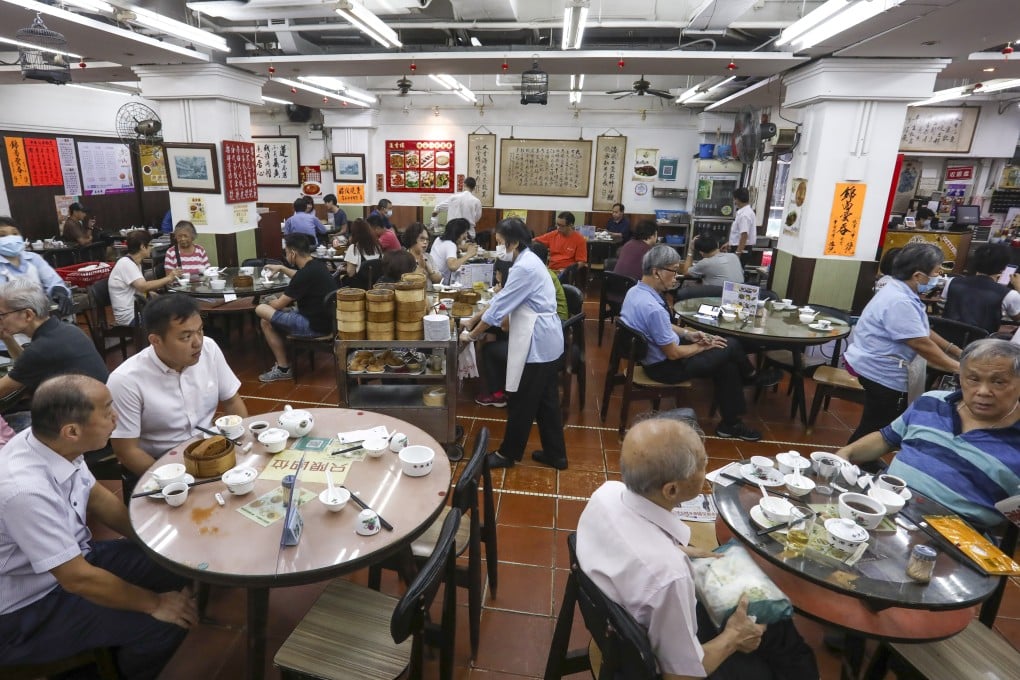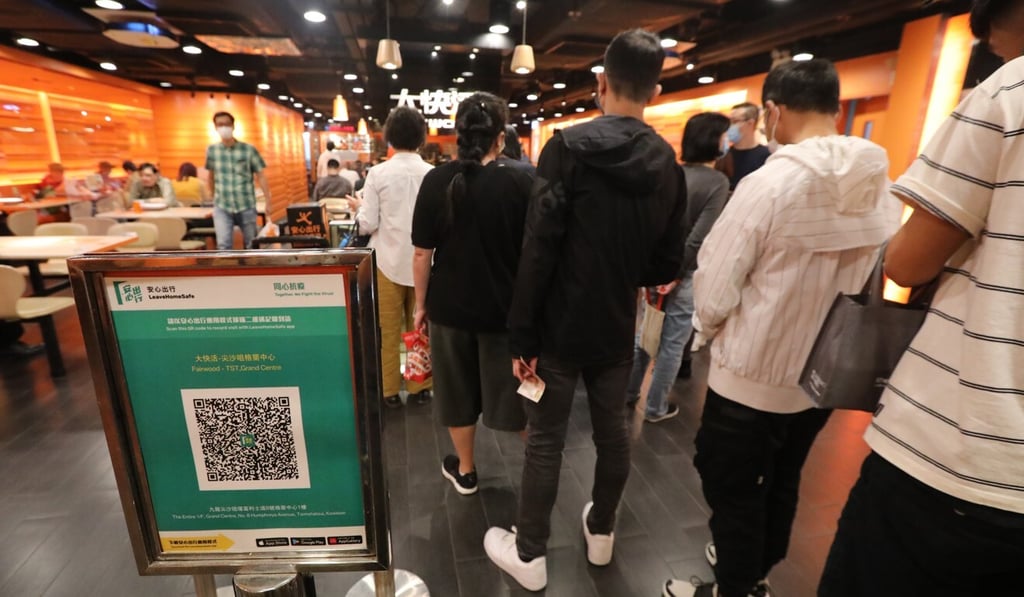Hong Kong restaurant receipts up whopping 44 per cent year on year in third quarter
- Restaurants took in HK$24.5 billion between July and September, compared with just HK$17 billion in the third quarter last year
- The government credits its consumption voucher scheme and a lull in the pandemic for the substantial bump

Restaurants took in HK$24.5 billion between July and September, according to provisional figures released on Thursday by the Census and Statistics Department, a significant improvement on the HK$17 billion in revenue recorded in the third quarter last year, which marked an all-time low since quarterly record-keeping began in late 2004.
The performance in the latest quarter was the best the city’s restaurants have seen since the three-months at the end of 2019, just before the onset of the pandemic.

A government spokesman said that restaurants’ business was improving as the pandemic stabilised, while the consumption voucher scheme and improved labour market conditions offered an additional bump.
“Looking ahead, the favourable factors mentioned above should continue to render support to the business of restaurants in the near term,” he said.